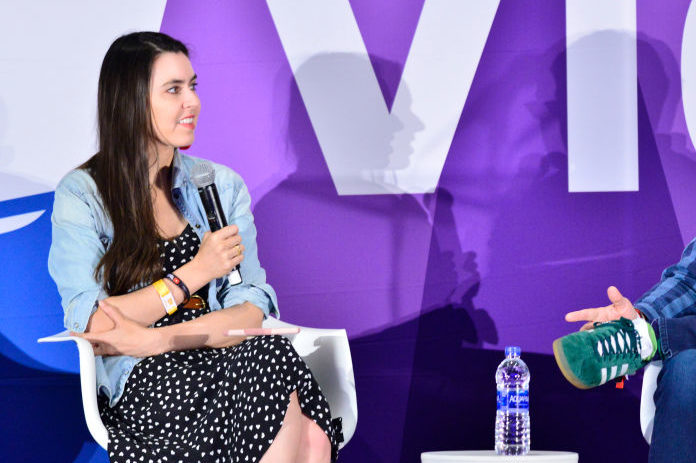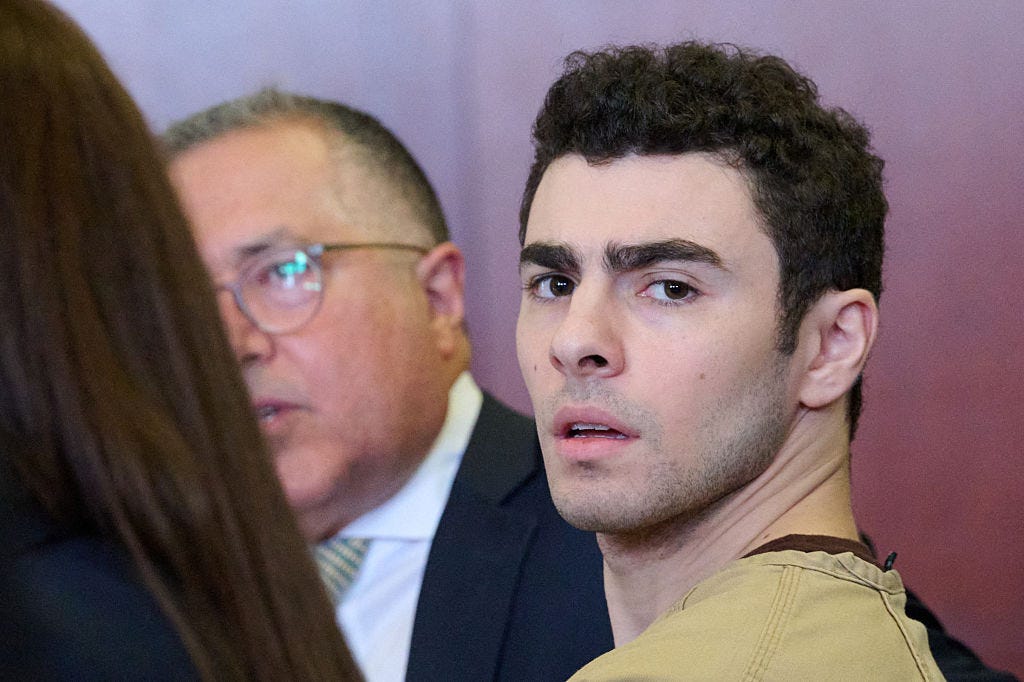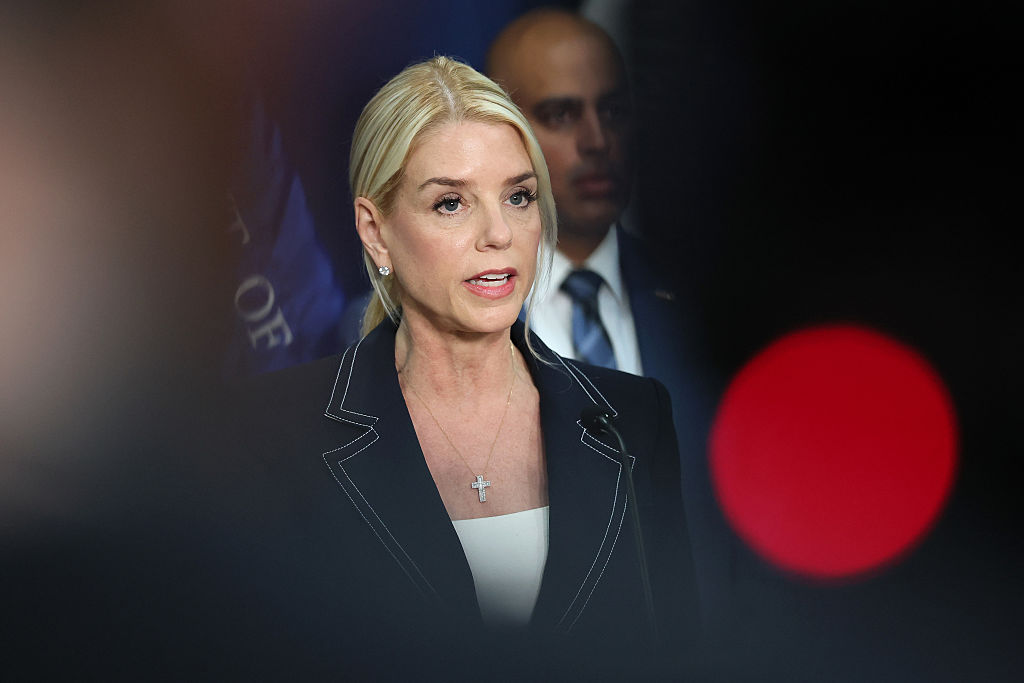‘To have a photographer come is overwhelming; a lot of kids don’t want anything to do with it, especially if their parents aren’t fully aware of what they are doing.’
No, that is not a quote from a child predator. It is from a New York Times reporter. But nowadays, there doesn’t seem to be much of a difference.
Taylor Lorenz is the tech reporter bringing Tiger Beat to the Gray Lady. She seeks to validate internet culture among the media class, taking TikTok videos, YouTube feuds and Instagram trends as seriously as an economics reporter does the Dow. What this means in practice is that she is a thirty-something woman exploiting teenagers for clicks.
Lorenz is responsible for igniting a very public feud between presidential adviser Kellyanne Conway, her husband George and their 15-year-old daughter Claudia. Claudia recently started posting anti-Trump videos on her TikTok account, which caused a bit of a stir because her mother, of course, works in the White House and ran Trump’s 2016 campaign.
This would be a normal case of teenage rebellion if not for the fact that Lorenz amplified Claudia’s videos to her over 170,000 Twitter followers. Lorenz justified her actions to concerned onlookers (who rightfully pointed out that the underage children of political figures should be off-limits) by arguing that her and Claudia are ‘mutuals’ and that she ‘literally talked to her’ about wanting more views on her content.
That’s the whole problem. Teenagers are drawn to controversy and attention like moths to a flame, and it’s up to the adults in the room to keep their best interests at heart. Rather than asking for her parents’ permission or at least being more sensitive to the consequences of making Claudia go viral, Lorenz commiserated with her like besties at a sleepover about to prank call their crushes.
Predictably, the situation blew up. George Conway sent a tweet asking journalists to ‘desist’ from speaking to his daughter, and Claudia responded by mocking her parents’ fraught marriage and demanding they return her phone. To normal observers, it was sad to watch the public breakdown of a family. Not to Lorenz. She egged it on.
Unfortunately, the Claudia Conway saga was just the latest example of Lorenz’s questionable ethics. She doesn’t even seem sure that minors can actually consent to her interviews. In an Atlantic article from February 2019, Lorenz made sure to note that all of the children she interviewed, who ranged from ages seven to 13 ‘spoke to me with [their] parents’ permission’. But in an interview with Digiday, which is partially quoted at the top of this piece, Lorenz explains that it’s not an uncommon occurrence for her to be speaking to and even entering the homes of minors when the parents ‘aren’t fully aware’ of the fact that their child is being approached by a reporter because they’re an internet star.
‘The biggest, most challenging thing about my job is getting teenagers to talk to me on the phone and getting them to let you into their house and follow them around,’ Lorenz said. ‘To have a photographer come is overwhelming; a lot of kids don’t want anything to do with it, especially if their parents aren’t fully aware of what they are doing.’
Lorenz refers to fears that she is taking advantage of these kids as ‘bad faith bullshit’. But clearly she knows something is amiss, because she states in several interviews that what she is doing would be considered creepy if she were a male.
‘I also think that, as journalists, women have an advantage in some communities since we’re seen as less threatening. For instance, I spend all day messaging teenagers on TikTok. If I were a man in my mid-thirties, I probably wouldn’t get the same responses that I do,’ she told the Caret.
Similarly, in Digiday, she said, ‘I think it’s much easier for me to slide into these people’s DMs in a non-threatening way than from a male journalist in his thirties kind of DMing random teen girls. So I definitely use that to my advantage.’
Lorenz is obviously correct that women get more leeway in their interactions with children. I normally would applaud the self-awareness, but Lorenz is the type of woman who blames sexism when people go after her, but then exploits sexism when it can be used to her advantage. In short, she’s a hypocrite.
[special_offer]
When Steph Korey, the CEO of Away, claimed reporters were making up claims about a ‘toxic’ work culture because they wanted to take down a powerful woman, Lorenz accused her of ‘crying sexism’. But when venture capitalist Balaji S. Srinivasan came to Korey’s defense, Lorenz insisted that she was the victim of ‘harassment’ and that it was ‘just a little taste of what it’s like being a female tech reporter’. How’s that for crying sexism?
When she’s not interviewing kids or talking about how hard it is to be a woman online, Lorenz can be found defending TikTok from potential regulation in the United States. TikTok, of course, is essentially Chinese spyware, but its ban would be a huge blow to Lorenz’s career. So, she defends it with the vigor of Chinese state media, bemoaning the ‘devastating’ effect losing TikTok would have on its young influencers and lashing out at people who point out its connection to the brutal CCP regime.
If Lorenz keeps up her egotistical and unethical style of journalism, her bosses will have bigger problems than how she feels about the office air conditioning.

























